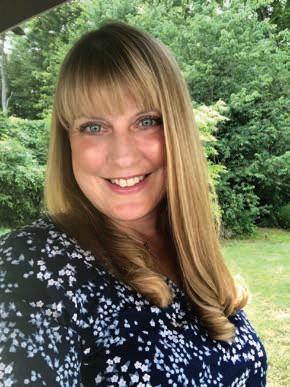
1 minute read
COUNSELOR, RESEARCHER, EDUCATOR
COUNSELOR, RESEARCHER, EDUCATOR
When the effects of COVID-19 infiltrated her community, the impact on Denise's work was immediate.
Advertisement
Engaged in a multifaceted career as both an outpatient clinician for CHD’ s behavioral health services in West Springfield and as an instructor at Westfield State University, Denise had her work cut out for her to quickly transition both her counseling and teaching careers to a virtual setting.
While facing the initial challenges of adjusting to telehealth and remote learning head on, Denise worked to ensure she could continue support for those she serves and those she teaches while also grappling with the difficult and overwhelming feelings of the pandemic herself. In doing so, she recognized the effects of the pandemic as a collective trauma, an experience she shared with those she served, and one that simultaneously ignited one of her other passions—research.
Continuing her essential support to those she serves through telehealth, Denise tapped into these experiences, as well as her own independent interests, to inform her work on a research team with Liberty University studying the psychological implications of the pandemic on both individuals and society as a whole. With this team, which mostly comprises Liberty University professors, Hughes and her colleagues are examining an array of factors associated with the pandemic, including both personal and collective trauma, the effects of ambiguous loss and more.
“It’s unique for us counselors because it’ s also a shared experience we ’ re having with our clients,” Denise said. “There’s a universality in counseling that occurs when we know we’re not alone, and it helps us get through really hard times. The research that I’ve done shows that when you have collective trauma and you’re sharing in the realities that your clients are experiencing, counselors can empathize on an even deeper level. ”


